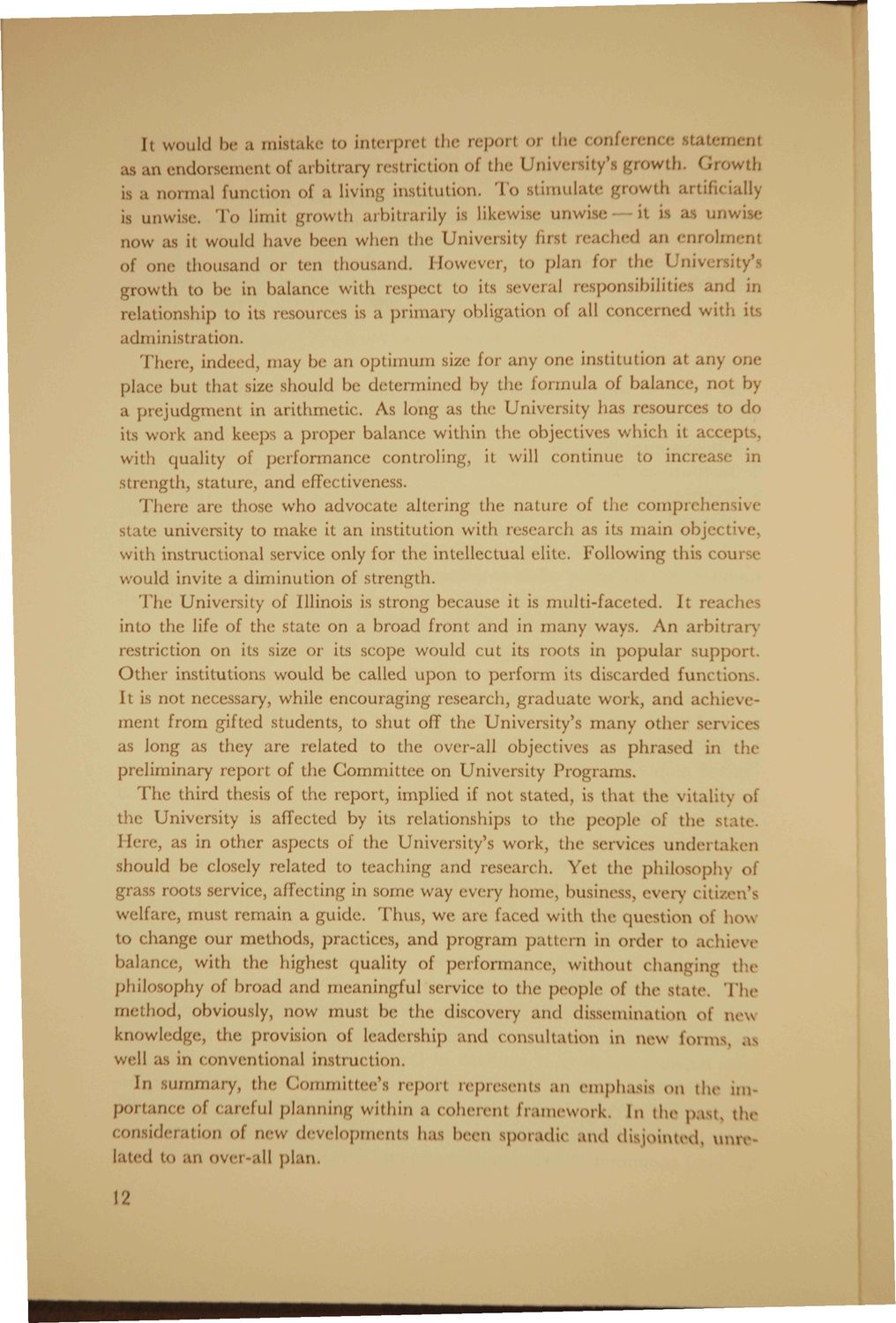Caption: Booklet - State of University (1958)
This is a reduced-resolution page image for fast online browsing.

EXTRACTED TEXT FROM PAGE:
It would be .1 mistake to interpret the report 01 the confcj men! is an endorsement of arbitrary restriction of the I ' n i v /sky's growth. G r o w t h is a normal function of a living institution. T o stimulate growth artificially is unwise. T o limit growth arbitrarily is likewise unwise — it is a u n w i now as it would have been when the University Inst reached an enrolment of one thousand or ten thousand. However, to plan lor the CJniv< ly growth to be in balance with respect to its several responsibilities and in relationship to its resources is a primary obligation of all con rned with i administration. T h e r e , indeed, may be an o p t i m u m size for any one institution at any o; place but that size should be determined by tint formula of balance, not by a prejudgment in arithmetic. As long as the University has i c o u r c I to do its work a n d keeps a proper balance within the objectives which it accepts, with quality of performance controling, it will continue to increase i strength, stature.', and effectiveness. T h e r e are those who advocate altering the n a t u r e of the comprehensive State university to make it an institution with r< irch as it.s main objective with instructional service only for the intellectual elite. Following this com would invite a diminution of strength. T h e University of Illinois is strong because it is multi-faceted. It reaches into the life of the state on a broad front and in m a n y ways. A n arbitral") restriction on its size or its scope would cut its roots in p o p u l a r support. O t h e r institutions would be called upon to perform its discarded functions. It is not necessary, while encouraging research, g r a d u a t e work, a n d achievement from gifted students, to shut off the University's m a n y other services as long as they are related to the over-all objectives as phrased in th( preliminary report of the Committee on University Programs. T h e third thesis of the report, implied if not stated, is that the vitality of the University is affected by its relationships to the people of the ite. Here, as in other aspects of the University's work, the servi s undertaken should be closely related to teaching and research. Yet the philosophy of grass roots service, affecting in some way every home, business, every citizen's welfare, must remain a guide. T h u s , we are fated with the question of how to change our methods, practices, a n d p r o g r a m pattern in order to achieve balance, with the highest quality of performance, without c h a n g i n g the philosophy of broad and meaningful service to the people of the state. T h e method, obviously, now must be the discovery and dissemination of new knowledge, the provision of leadership and consultation in new forms, as well as in conventional instruction. In summary, the Committee's report represents an emphasis on the importance of careful planning within a coherent framework, in the past, the consideration of new developments lias been sporadic and disjointed, unrelated I" an OVer-all plan. 12
|